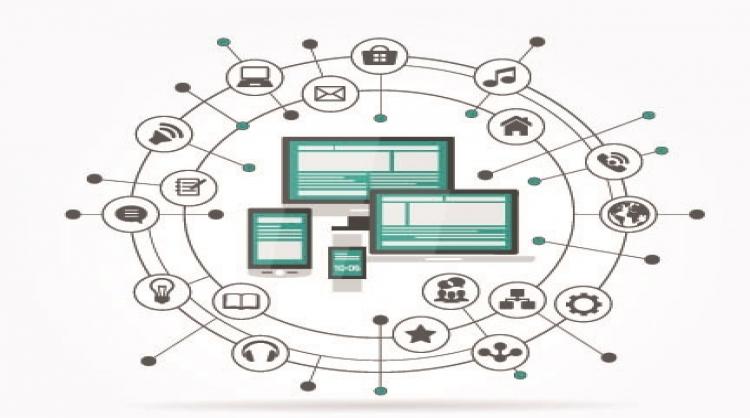Preliminaries Over, Net Neutrality Lawsuit Now Set for December Oral Argument
October 9, 2015 | by Andrew Regitsky

This was the week where the industry put all its pregame skirmishing behind and finally dug in for the much anticipated oral argument to be held December 4, 2015 at the DC Circuit Court of Appeals regarding the lawsuit by cable companies and Internet service providers (ISPs) against the FCC’s Open Internet Order.
The October 4th Joint Reply brief by USTelecom, NCTA, CTIA, ACA, WISPA, AT&T and CenturyLink was the last scheduled filing before the oral argument finally takes place. The parties for and against net neutrality have had the opportunity to make their case and the Court will finally have its say on December 4th.
In their Joint Reply Brief, the petitioners reinforced their earlier arguments against the Open Internet Order:
Improper Classification of Broadband Internet access service - Broadband Internet access fits squarely within the 1996 Telecommunication’s Act’s definition of information services that may not be regulated as common carriers under Title II. Congress explicitly stated that the term “information service” includ[es] specifically a service... that provides access to the Internet. In addition, the FCC admits the order rejects factual findings underlying its longstanding information-service classification of broadband, and cites no substantive justification for disregarding those findings. In other words, the FCC reclassified broadband because it wanted to, results be dammed.
Mobile broadband - Title II reclassification is doubly unlawful as to mobile broadband, which is protected from common carrier regulation by additional, independent statutory provisions.
Traffic exchange between ISPs and edge (content) providers - The Order unlawfully expands the newly reclassified broadband service to run from the customer’s premises (or mobile device) all the way across the Internet to the hand-off to other networks or content providers. It does so to try to evade this Court’s holding in the 2010 Net Neutrality Order that the FCC cannot impose common carrier regulation on the relationship between broadband providers and edge providers without reclassifying that relationship as common carriage as it declined to do. As the Joint Petitioners state:
The FCC cannot defend its decision to apply Title II to Internet interconnection arrangements that were not themselves reclassified as common carriage. The FCC’s brief (at 119-20) simply repeats the Order’s statements that the reclassified retail broadband service includes an implicit promise to establish common-carriage Internet interconnection arrangements. That is fiction. The FCC does not dispute that Internet interconnection agreements have always been private-carriage arrangements…or that those agreements “will continue to be commercially negotiated... It follows that broadband providers have not promised to enter into interconnection arrangements on a common-carrier basis. The FCC’s attempt to impose Title II requirements on such services thus “run[s] afoul of section 153(51)” and “section 332 [of the Telecommunications Act].” (Joint Reply Brief at p. 35)
The Order violates the Administrative Procedure Act (APA) - The public was not provided with sufficient notice when the Commission decided to shelve its 2014 draft rules which had proposed continued light regulation of broadband Internet access providers under section 706 of the Act and decided to impose reclassification.
Internet Future Conduct Standard – The Commission’s decision to evaluate all future Internet behavior on a case-by-case basis to determine to determine if such behavior is reasonable is a standard that is too vague and provides limitless FCC authority.
The opinion here is that the Joint Petitioners have made a compelling case that demonstrates that the FCC’s decision to reclassify broadband Internet access service as a Title II telecommunications service was results and not fact driven and therefore arbitrary and capricious. If the DC Circuit Court evaluated the Open Internet Order strictly on its merits, the Order would be rejected. However, with politics becoming such a factor in judicial decisions these days, it is possible the Court could find the FCC’s actions lawful. Regardless of the decision, an appeal by the losing side to the Supreme Court is likely.
Also this week, on October 6th the FCC sent a letter to Commercial Network Services (CNS) rejecting its long-shot informal complaint against Time Warner Cable (TWC). CNS had claimed that it was being charged unjust rates by Time Warner Cable (TWC) to deliver its streaming Web cam video to customers. It demanded that TWC deliver this traffic for free.
In addition, CNS argued that TWC was violating the “No Paid Prioritization” and “No Throttling” Open Internet rules by sending its traffic through high latency often highly congested routes instead of directly to the edge provider through low latency peering routs. TWC responded that CNS did not qualify for a settlement-free deal and its handling of CNS’s traffic was consistent with the practices of all major ISPs and well-established industry standards.
By rejecting the informal complaint, the FCC signaled the industry it will not make any final decisions about any complaint made against an ISP or cable company at least until it can assess how the oral argument resonates with the DC Circuit.
While lawyers will often state that questions asked by judges at oral argument can mislead as to how they are actually thinking, these same lawyers will then use the oral arguments to successfully predict the outcome of a case. Therefore, mark December 4, 2015 on your calendar. It will be an extremely important day in the future of Internet regulation.
By Andy Regitsky, CCMI

